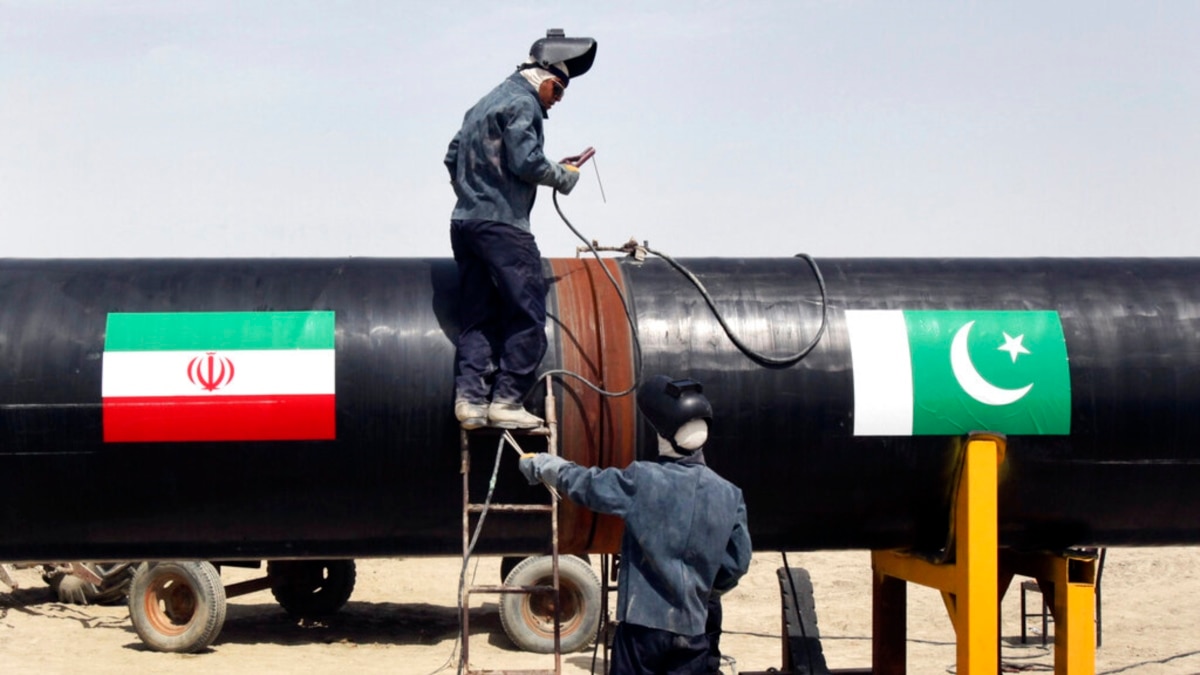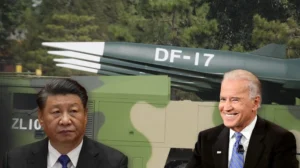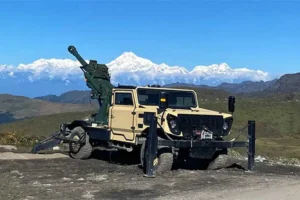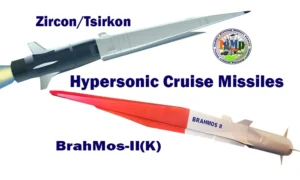The Islamic Republic of Pakistan, which takes pride in claiming to be championing the cause of the Muslim community, albeit selectively, succumbed to American pressure and let down the Islamic fraternity of Iran by withdrawing from its decade-old commitment to laying the gas pipeline on its side under the Iran-Pakistan Gas Pipeline Project.
Nord Stream Of Asia! Pakistan Succumbs To US Pressure; ‘Champions’ Of Islam Betray Iran
According to a written testimony given to the National Assembly, Pakistan Minister of State for Petroleum, Dr. Musadiq Malik, said, “Pakistan has issued a Force Majeure and Excusing Event notice to Iran under the Gas Sales and Purchase Agreement (GSPA), which resultantly suspends Pakistan’s obligations under the GSPA.”
The testimony was made to answer a question raised by one Jamal-ud-Din, a Member of the National Assembly of Pakistan, who wanted to know if the government had a target completion date for the cross-border energy project and whether fines were due in case of delays.
Explaining why ‘Force Majeure,’ the minister said, “The GSPA is stalled due to international sanctions on Iran.” He clarified that the project activities would begin once sanctions on Iran are removed and there is no threat that sanctions would hit State Owned Entities (SOEs).” He added that no date and deadline could be given for the completion of the Iran-Pakistan Gas Pipeline project.
The Force Majeure and Excusing Event – the option to which Pakistan has taken recourse – is a ploy to rationalize succumbing to the US pressures. It reflects international diplomacy, of which arm-twisting is one of the options to coerce a sanctioned state to come to terms.

Two significant steps were taken by the Pakistan government within days of IMF sanctioning the financial loan of about US$1.6 billion, followed by more loans from Saudi Arabia, UAE, and China.
The first step is to halt the construction of the Iran-Pakistan gas pipeline on its territory while Iran has completed laying the pipeline on its territory. This would convince the authorities in Washington that Pakistan has agreed not to circumvent international sanctions against Iran.
Cash-strapped Pakistan unilaterally suspended its obligations in the multi-billion-dollar project, officials announced plans to purchase more electricity from the Islamic Republic of Iran
Pakistan will pay $18 billion fine if Iran goes to arbitration. pic.twitter.com/VniJR4sCDV
— Iran Observer (@IranObserver0) August 8, 2023
The second step taken by the Pakistan government is to pass a bill in the National Assembly which stipulates blocking financial sources of terrorism within Pakistan.
This was among the conditions laid down by the IMF when prolonged negotiations were conducted for sanctioning fresh loans in favor of Pakistan to overcome its current financial crisis.
Iran’s Reaction
Iran disputed the validity of Pakistan issuing the notice of ‘Force Majeure and Excusing Event’ under which Pakistan claimed the right to stop laying the gas pipeline on its territory.
It brought the onus to the doorsteps of Washington and not giving any hint of its financial crisis for the last year and a half that hindered the laying of the pipeline.
Only recently, Iranian foreign minister Hossein Amir Abdullahi was on a three-day visit to Islamabad, where he met with his Pakistani counterpart. He emphasized to the Pakistan foreign minister the need to complete the project, saying it would serve the two countries’ national interests.
While the two sides agreed to increase bilateral trade to $5 billion in five years, the Iranian diplomat said they discussed how a solution to some existing banking and financial problems could be solved.
Tehran says it has completed its side of the 1,150-kilometer pipeline for which a groundbreaking ceremony was jointly conducted by the then presidents Asif Ali Zardari and Dr. Mahmoud Ahmadinejad on the Iranian site of Gabd, near Chahbahar in March 2013 with the estimated cost of $7.5 billion.

Pakistan was supposed to complete its side by January 2015. But in February 2014, the then petroleum minister of Pakistan, Shahid Khaqan Abbasi, told the National Assembly that the project was “off the table” owing to international sanctions.
This means that Pakistan was aware from the beginning that the US was unfavorably disposed towards the project, which is why Pakistan did not take any initiative in laying the pipeline from its side.
Uncertain Future
Nobody can say what shape the issue will take with time. Petroleum minister, while presenting his statement in the parliament, had said that the Iranian stand that the Pakistani notification was devoid of validity could only be finally settled through international arbitration should Iran choose to take the matter to arbitration.
Consequently, he said that the exact amount of penalty, if any, was subject to the outcome of the arbitration to be determined by the arbitrators.
Invoking US’ Goodwill
While testifying before the parliament, the Pakistani minister for petroleum said that the Government of Pakistan was engaged with the US authorities through diplomatic channels to seek exemption for the project.
He said all necessary actions were being taken to construct the gas pipeline at the earliest. So far, there is no indication from the US side whether the Iran-Pakistan gas pipeline project will be exempted from sanctions or not.

But recently, there have been reports that the US has shown a slight change in its stance towards Pakistan, and the two sides are considering a strategic alliance once again.
Since Pakistan has begun to show that it would adhere to the conditions laid down by IMF and project itself as a responsible state, there is speculation that the gas pipeline issue could be resolved.
Conclusion
It is interesting how bizarrely Pakistan has played the entire gas pipeline narrative. From day one of signing the agreement with Iran, Pakistan did harbor a clear intention of contributing its agreed amount for laying the pipeline.
Then, as early as 2014, Pakistan began bringing up the idea that the gas pipeline issue was off the table due to international sanctions on Iran.
It did not invest whatsoever. By directly holding the US responsible for bringing Pakistan under pressure to scuttle the project, Pakistan subtly and indirectly considers Washington accountable for paying damages if an arbitration body suggests reparation.
Not only that, there could be something more as well. When sanctions on Iran are lifted, and Pakistan will have no option but to begin laying the pipeline on its side, it will shift the responsibility to Washington to at least bear the escalated cost of laying a new pipeline right up to Karachi.
Yet another take from the episode is that the much-hyped solidarity of the ummah is not the reality. By succumbing to the diktat of the US, Pakistan has proved for the second time that its claim of leading the ummah is phony and untenable.
- KN Pandita (Padma Shri) is the former Director of the Center of Central Asian Studies at Kashmir University. Views expressed here are of the author’s.
- Mail EurAsian Times at etdesk(at)eurasiantimes.com







